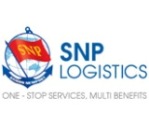In light of challenges to its regional competitiveness, Maersk Line recommends Vietnam can improve productivity through technology and use of e-solutions.
According to Maersk Line Vietnam’s first trade report for 2014, Vietnam’s economic outlook remains modest in the face of challenges to its competitiveness. In spite of declining Foreign Direct Investment, the country still enjoys macroeconomic stability with inflation on target, a steady exchange rate, and a strong export sector posting a surplus. However, in regards to long-term growth, Vietnam continues to experience constraints and obstacles to its global competitiveness.
Ms. Bich Nguyen, General Director of Maersk Line Vietnam & Cambodia commented, “The market growth that we have experienced in the first quarter of the year mirrors the trends in Vietnam’s overall trade balance. The domestic economy may continue to be hampered by the slow pace of structural reforms of State-Owned Enterprises (SOEs) and the banking sector, but its heart – manufacturing and production – still remains robust.”
However, in spite of boasting a trade surplus all year and a booming production sector, Vietnam’s competitiveness within the region is on the decline. Vietnam’s logistics costs is 25% of its GDP, which is higher than most of its competitors in the region. This is partly due to vague government regulations which results in additional operational costs and lower productivity for enterprises. Furthermore, although Vietnam has been enjoying a trade surplus, the goods being exported tend to be low value-added products that are labour-intensive, require little technical skills and technological inputs.
Ms. Bich added, “Vietnam has been benefitting from a growing influx of young workers which has provided the country with a competitive advantage in labour costs. However it is critical to increase our labour productivity to convince more investors to set up their factories here, and one of the ways we can have significant productivity gains is through technological transfer.”
Improving Competitiveness through Paperless Transactions
Maersk Line recently conducted a local customer survey in Vietnam, which found that 7 out of 10 of its customers find that e-commerce is important to their business. Many challenges facing enterprises can be addressed by focusing on productivity improvements through implementing e-solutions. Automating systems and transactions are the key to increasing productivity, accuracy, transparency, visibility of data and reducing costs.
Ms. Bich commented, “E-solutions mean less time, less mistakes and less, if not, zero additional cost being incurred due to documentation errors. Customers can benefit from consistent service and transparent processes. As Vietnam seeks to compete in the world economy and trade in higher value added goods under just-in-time productions, transaction speed and reliability of service will be key.”
In 2002, Maersk Line began streamlining its e-booking, e-documentation and most other customer transactions. In Vietnam, Maersk Line's e-booking solution usage rate by customers is 85% and manual bookings are on the decline. With e-booking, it is now feasible for customers to receive confirmation of their bookings in less than 10 minutes. E-booking saves time, requires less follow-up activities such as phone calls and emails, thus improving productivity.
Ms. Bich added, “On the whole, e-solutions mean more opportunities, including increased productivity and savings, thereby attracting more investments. This is an exciting time for Vietnam, if we focus on the right methods for driving competitiveness.”
Vietnam Shipper




(1).jpg)








